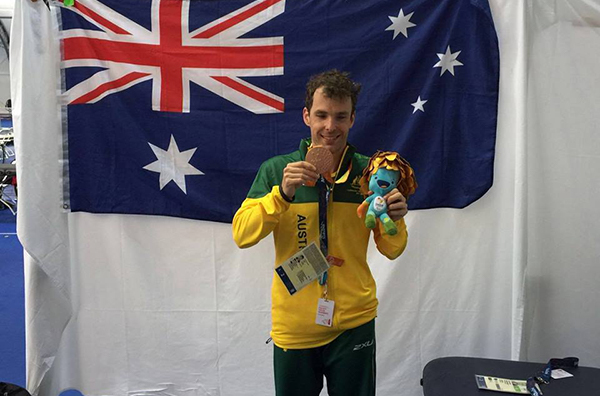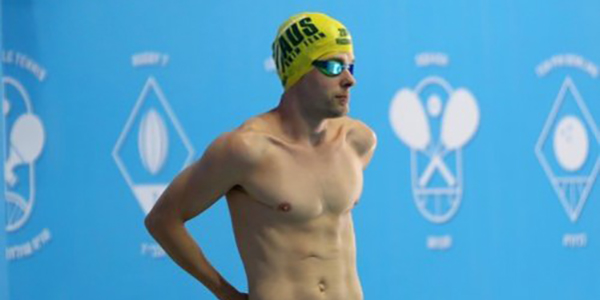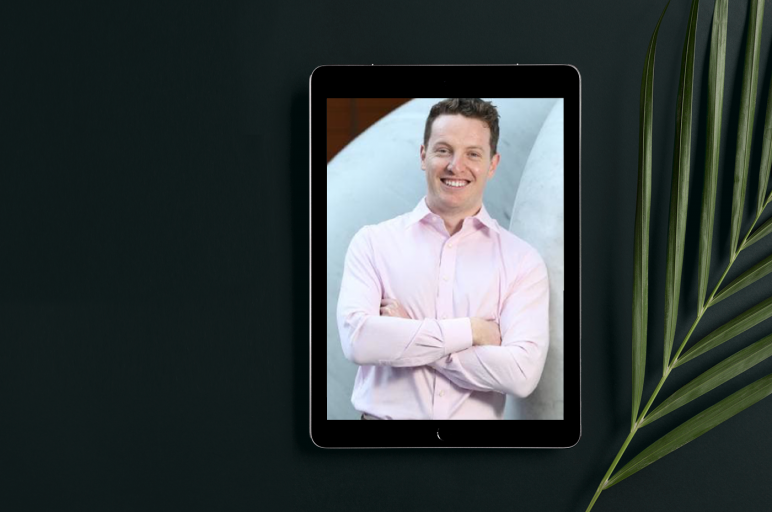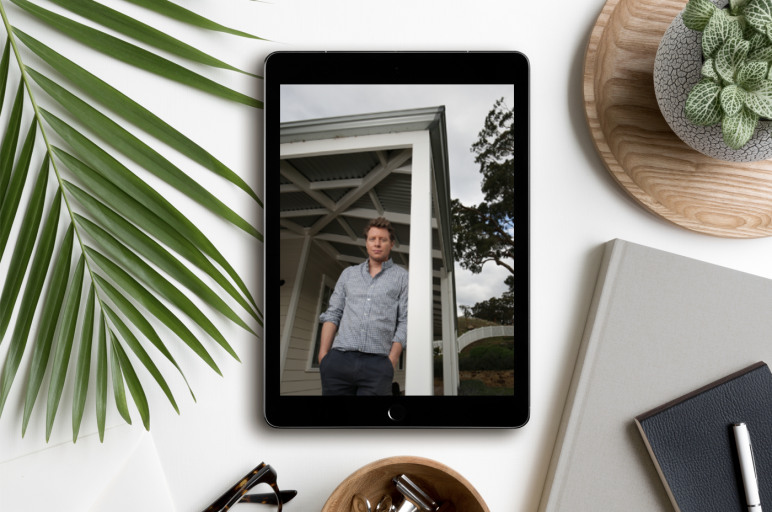Some people have unthinkable depths of grit, determination and talent. They achieve amazing feats while the rest of us shake our heads in wonder. Matt Levy is one of these people.
Matt is a 6 time Paralympic swimming medallist, his most recent win saw him return home with the gold medal from the Commonwealth Games on the Gold Coast. His days start at 4.30AM, consist of 5km of swim training, then he goes to his day job, or in his words “train, eat, sleep, repeat”.
Stockspot was lucky to talk to Matt about the incredible challenges he faced in early life and how he balances a professional sports career, charity work and managing his finances.
Matt, I’ve had the pleasure of knowing you for 25 years but some people may not know your story. What was your life like growing up?
I was born at 26 weeks back in 1987, I was ventilated for the first 3 or so years of my life. I have had 50+ operations on various parts of my body, from heart, lungs, ear and brain.
I was born with cerebral palsy (due to 3 strokes in first few days), hydrocephalus (due to a bleed in the brain in first few days) and I’m also vision impaired (3 metres central vision and no peripheral, this was due to lack of oxygen at birth).
My first 5 or so years were spent in and out of hospital, before learning to talk, crawl and walk became my next challenge for many years. Then many more operations and doctors appointments including speech therapy, physiotherapy etc.
What drew you to swimming when you were a kid?
The main reason why I started swimming was due to health reasons, also I’m asthmatic so swimming helps with that. It was good therapy.
You’ve now won medals at the Beijing, London and Rio Olympics and most recently the Commonwealth Games on the Gold Coast. What has been the medal you fought hardest for?
I think all of them are equally hard fought. They all require exercising 7 days a week, including 11-13 sessions of swimming, gym, pilates sessions and various other dry land sessions. That’s on top of physio, massage and sports physio sessions.
All of the games, whether it is a Paralympics, Worlds, Commonwealth Games or Nationals requires the same amount of work ethic. You never know going into an event what you are going to get out of it until you are there. So they are all hard fought and the hardest in their own way. You never know what opportunities will come from a particular event.
Swimming seems like it could be a lonely sport. What keeps you motivated to keep swimming and competing at an international level?
I guess knowing that I have still improvement in myself, knowing that you still are up there competing with the world’s best at my age is pretty cool and I enjoy what I am doing.
Will this latest Gold medal help to bring in the big sponsorship money?!
It is a very hard landscape in sport so to get sponsorship is difficult. I don’t do my sport for the money and the accolades but because I love doing what I do. I have worked 8 years at Westpac so that helps fund my various swimming activities. My family and friends are all very supportive of my sporting journey so that helps put everything into perspective.

There’s often a perception that elite athletes earn a lot, but this is rarely the case. How do you balance competing and making a living?
I have a very busy lifestyle I guess, I get up at 4.30am 6 days a week and train about 4-5km each sessions then do it all again in the afternoon. In between my training I work from 8am-3pm 4 days a week. So there isn’t a lot of room for down time. Just train, eat, sleep, repeat. Plus a few motivational speaking jobs on the side.
Do you think there’s enough money / financial literacy education for elite athletes?
I think there can be better education for athletes and how best to use their finances. A lot of them are on the road so much at various meets or camps that they miss the concept of money and how to use it. They are in a bubble type environment that you don’t really understand or get in the real world.
In the various Paralympic villages I have stayed in, you are competing for your country and that is what you do when you are there. You eat, sleep and do your sport, this makes learning about how to deal with money hard.
Did the way you think about money change when you started swimming for Australia?
I don’t think it changed as I have always been pretty savvy with the way I spend. I think working for a bank helped that and studying early on in my sporting career also. I think in sport you need to be disciplined and understand how money affects you.
We are given great opportunities as representatives of our country to be fantastic role models for the future, this includes how we deal with our financial education. You are only in sport for a small period of time, making the most of it and taking those opportunities can help you in the future.

You’re an ambassador of quite a few charities. What made you want to get involved with them? Is there one you’re most proud of your work with?
I am involved in a few charities, I think giving back and remembering where you came from is very important in life. To never lose sight of who you are, no matter how successful you are.
I am most proud of my work with Life’s Little Treasures Foundation which raises awareness for premature births and helps families affected by this. In 2016 we raised over $250,000 for the cause with the Walk for Prem’s event they do annually. This helps purchase information booklets to be distributed to families in need.
What’s your philosophy on saving and spending?
Save for what you want and spend on what you need.
Always keep learning.
Most extravagant purchase and would you do it again?
I think the most extravagant purchase would have to be my apartment, bought in 2012. And yes, to know you own an asset is pretty cool.
Stockspot makes it easy to grow your wealth and invest in your future.
As shared by Matthew Levy exclusively for Stockspot. Interview edited and shortened for clarity. Images supplied.




